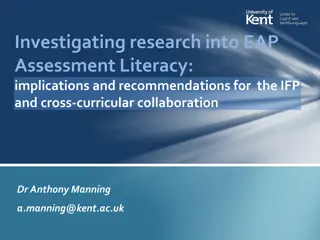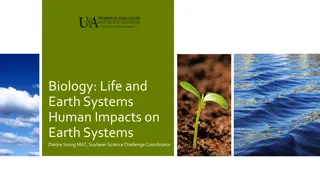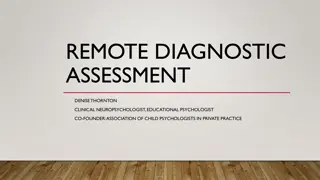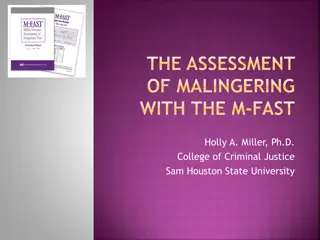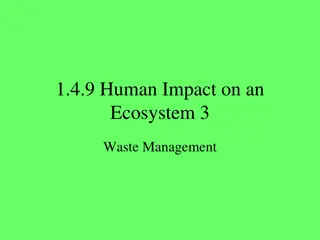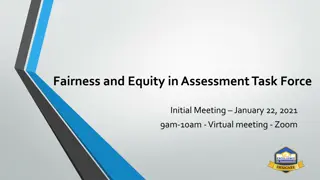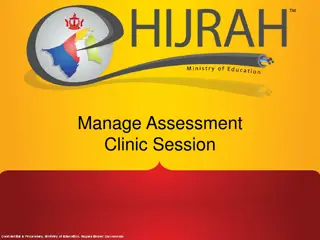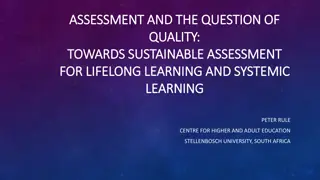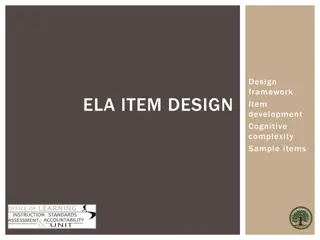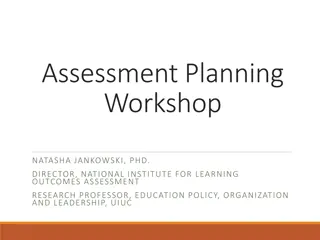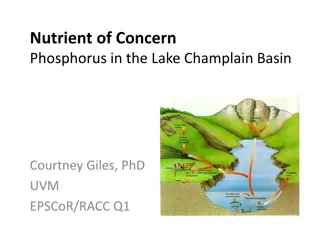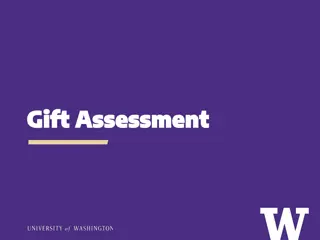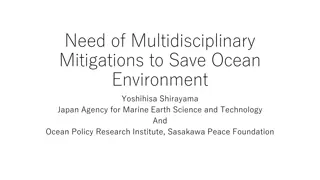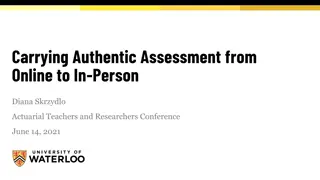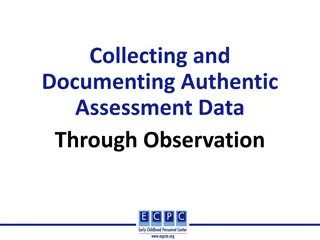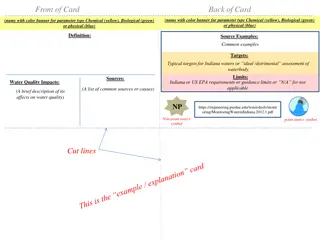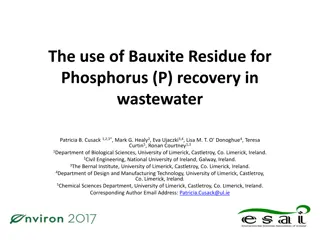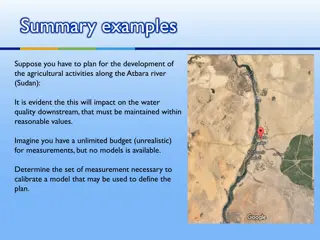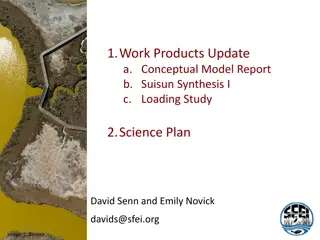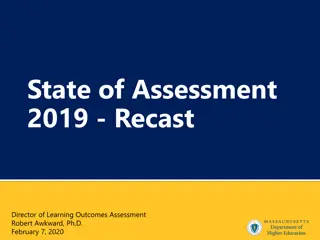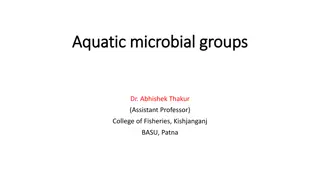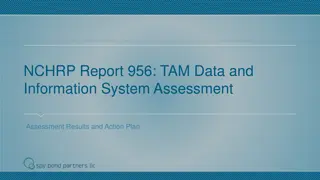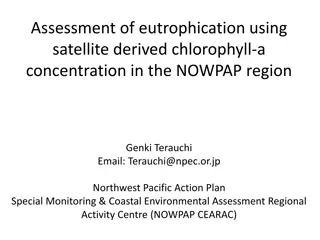Sheffield Early Help Assessment Form Update and Integration with Extended Support Plan
Sheffield has introduced an updated Early Help Assessment form to streamline the assessment process within the Early Help System. This new form combines the Early Help Assessment with the Extended Support Plan, aligning various assessment tools and referral forms into one comprehensive document. The
6 views • 22 slides
Enhancing Language Learning Through Peer Assessment
Explore the benefits of peer assessment as a valuable tool for language learning, comparing it with self-assessment. Discover the components and challenges of self-assessment, along with the potential of peer assessment to improve accuracy and promote self-regulation. Gain insights into what peer as
4 views • 29 slides
Investigating EAP Assessment Literacy for IFP and Cross-Curricular Collaboration
This research project by Dr. Anthony Manning explores the implications and recommendations regarding EAP assessment literacy for the International Foundation Program (IFP) and cross-curricular collaboration. The study delves into defining assessment literacy, research objectives, relevant literature
3 views • 26 slides
Overview of DSW End Point Assessment Team Leader Level 3
DSW End Point Assessment Team Leader Level 3 provides a clear understanding of the assessment process, ensuring individuals comprehend why and when it occurs, responsibilities involved, and how DSW supports them. It covers topics such as what End Point Assessment entails, assessment design and deliv
2 views • 18 slides
Understanding Human Impact on Water Systems in Agriculture
Human activities, such as animal farming, can significantly impact the Earth's surface and water systems by introducing excess nutrients and waste runoff. This leads to eutrophication, soil erosion, and water contamination. Farmers are working on conservation practices to mitigate these issues, such
2 views • 10 slides
Remote Diagnostic Assessment Explained by Clinical Neuropsychologist
Remote diagnostic assessment, also known as telepractice, allows assessors and individuals to be in separate locations while using internet-connected devices for assessment sessions. A facilitator may be present for support, and precautions are taken to ensure confidentiality and integrity of the as
3 views • 13 slides
Understanding Malingering: Assessment and Implications
Malingering, intentional fabrication of symptoms for external gain, presents challenges in assessment. The M-FAST (Miller Forensic Assessment of Symptoms Test) offers a detailed approach for identifying malingering behaviors. Research suggests relying solely on clinical judgment may lead to inaccura
5 views • 24 slides
Understanding Waste Management in Agriculture
Waste management in agriculture involves addressing issues such as farm waste, chemical fertilizer misuse, and animal manure excess to prevent water pollution and eutrophication. Proper management practices are crucial for agricultural sustainability and environmental protection.
1 views • 34 slides
Fairness and Equity in Assessment Task Force Meeting Overview
The Fairness and Equity in Assessment Task Force is committed to establishing guidelines to ensure fairness in assessment processes at the University of Florida. The task force members are tasked with developing models and guidelines for faculty and staff to promote equitable assessment practices. R
2 views • 29 slides
Lancashire Assessment and Planning Framework: Enhancing Child Welfare Through Comprehensive Assessments
The Lancashire Assessment and Planning Framework outlines the approach for assessing and managing child welfare cases in Lancashire. It emphasizes the importance of effective assessment, planning, and interventions to meet the needs of children and families. The framework integrates tools like the C
0 views • 13 slides
Understanding Assessment in Medical Education
Exploring the concepts of assessment in medical education, including defining assessment, types of assessment, reliability, validity, and aligning assessment methods with intended learning outcomes. The importance of constructive alignment and the impact of assessment on learning outcomes are also d
1 views • 12 slides
Germany and West Germany 1918-1989: Paper 1 Assessment Overview
This content provides information about the Paper 1 assessment on Germany and West Germany from 1918 to 1989. It includes question types, assessment structure, marking schemes, and aims to help students understand the focus areas and concepts of the assessment. The assessment covers political, socia
7 views • 54 slides
Effective School Assessment Setup Strategies
Explore how to manage assessment clinic sessions, address special cases in school assessment setups, handle student assessment marks in different scenarios like transfers, absences, and more. Learn about entering assessments for absent students, conducting result slip generation, and using assessmen
0 views • 19 slides
Towards Sustainable Assessment for Lifelong Learning and Systemic Learning
Assessment is integral to everyday learning, not just formal education. It involves questioning and making judgments, whether in tasting soup or raising a child. This presentation delves into the meaning of quality education, assessment, and their role in curriculum, educational reforms, and sustain
1 views • 27 slides
Assessment Matters in Sociology: Enhancing Learning Through Evaluation
Explore the significance of assessment in sociology education, focusing on key questions to evaluate current assessment procedures, review individual course assessments, and develop strategies to enhance student learning outcomes. Delve into the centrality of assessment in the learning process, with
2 views • 15 slides
Comprehensive Framework for Designing and Developing Educational Assessment Items
Explore a holistic approach to designing assessment items in education, focusing on cognitive complexity, learning progression, assessment quality, alignment framework, and criteria for measuring alignment degree. Learn about universal design principles, grade appropriateness considerations, and ite
1 views • 22 slides
Safety Assessment and Accelerator Safety Envelope Review
Overview of the Safety Assessment Document (SAD) and Accelerator Safety Envelope (ASE) process for the 400 MeV Test Area (MTA) at Fermilab. The document details the shielding assessment, approval process by various committees, and updates made to the SAD chapters and the Accelerator Safety Envelope.
5 views • 8 slides
Insights into Managing Assessment in the Classroom by Assessment Research Group
Explore the importance of standards and assessment in education through the lens of the Assessment Research Group. Gain valuable perspectives on curriculum delivery, understanding the assessment system, learner assumptions, task parameters, and more. Discover how language, structure, and agency play
3 views • 25 slides
Workshop on Assessment Planning by Dr. Natasha Jankowski
Dr. Natasha Jankowski, Director of the National Institute for Learning Outcomes Assessment, conducts a workshop focusing on effective use of assessment data to enhance undergraduate education. The workshop covers areas like evaluating assessment plans, program learning outcomes, and assessment rubri
1 views • 30 slides
Enhancing Understanding through Assessment in Educational Design Workshop
Learn and collaborate on assessment practices in education design at the "Understanding by Design Assessment Focus" workshop. The agenda includes sessions on summative and formative assessment, feedback, reporting, and more. Engage in activities like generating questions, finding destination partner
2 views • 76 slides
Exploring Phosphorus: History, Distribution, and Impact in the Lake Champlain Basin
Explore the history and significance of phosphorus, a nutrient of concern in the Lake Champlain Basin. From its discovery by Hennig Brand in 1669 to its various uses in fertilizers, detergents, and even warfare, phosphorus plays a critical role in the environment. Discover the global phosphorus pool
0 views • 53 slides
Institutional Assessment Planning Workshop Feedback and Insights
Feedback and insights from a recent institutional assessment planning workshop led by Dr. Mark Nicholas at FSU S. Warren Conference Center & Inn. Participants provided feedback on the usefulness of the content, presenter knowledge, ability to develop assessment plans, post-training assessment knowle
2 views • 9 slides
Understanding Higher Education Assessment: The Complete Guide
Higher education assessment involves a systematic process of collecting, reviewing, and utilizing information to improve student learning and development. This guide covers the assessment cycle, learning outcomes, the mission behind assessment in higher education, what assessment is and is not, reas
1 views • 36 slides
Understanding Gift Assessment Process at University of Washington
The Gift Assessment Process at University of Washington involves applying a 5% assessment to select current-use gifts over $1,000 and under $5 million. This assessment supports the university's advancement efforts and institutional priorities by transferring 5% of eligible contributions to the Provo
1 views • 5 slides
Overview of Environmental Impact Assessment and Strategic Environmental Assessment Directives
Environmental Impact Assessment (EIA) and Strategic Environmental Assessment (SEA) play crucial roles in evaluating the impact of planned activities on the environment. This content delves into the concept, origins, development, and key elements of environmental assessment, discussing the legal fram
2 views • 35 slides
Understanding Tipping Points in Ecological and Economic Systems
Delve into the complex dynamics of tipping points in ecological systems such as insect outbreaks, eutrophication of lakes, and bleaching of coral reefs, as well as their economic implications. Explore the interactions between human behavior and environmental factors, and the challenges in managing t
0 views • 29 slides
Institutional Assessment and Effectiveness Workshop Achievements at SUNY Oneonta
The Office of Institutional Assessment and Effectiveness at SUNY Oneonta has made significant progress in developing assessment protocols and processes, leading to a culture of assessment. This includes completing planning and assessment cycles, establishing objectives and procedures, and aligning u
2 views • 16 slides
Multidisciplinary Mitigations for Ocean Environment Conservation
Global ocean climate change poses significant threats to marine ecosystems, requiring multidisciplinary approaches for mitigation. Japanese research highlights expanding distributions of reef-building corals, deep-sea water temperature rise, ocean acidification impact on marine plankton, and thinnin
0 views • 4 slides
Oregon Department of Education Assessment and Accountability Resources
Access important information on assessments, accountability, and reporting from the Oregon Department of Education. Find resources on updating assessment records, accessing student scores, and staying informed about assessment requirements for the 2023-24 academic year. Explore links for assessment
0 views • 55 slides
Oregon Department of Education - Assessment Resources and Updates
Explore the Assessment Record Updating Application (ARUA), Accountability Warehouse Extract (AWE), Secure Assessment Reports, and other important tools and information provided by the Oregon Department of Education for assessment data owners, analysts, and partners. Access links for assessment admin
1 views • 54 slides
Enhancing Teaching Assessment for Actuarial Education
Exploring the transition of assessment practices from online to in-person settings, this presentation by Diana Skrzydlo at the Actuarial Teachers and Researchers Conference delves into the purpose of assessment, key principles, and activities for effective evaluation. Discover insights on diagnostic
0 views • 10 slides
Authentic Assessment through Systematic Observation: Best Practices
Explore the process of authentic assessment through systematic observation in early childhood education. Learn about collecting, documenting, and interpreting assessment data using evidence-based practices and technology. Discover the importance of working collaboratively with families and professio
1 views • 53 slides
Understanding Water Quality Parameters and Glossary of Terms
These informative quick cards offer insights into key water quality parameters such as chemical, biological, and physical readings for assessing water health. The glossary of terms provides definitions essential in understanding water quality science and management, ranging from eutrophication to po
2 views • 18 slides
Utilization of Bauxite Residue for Phosphorus Recovery in Wastewater
This study explores the potential of using bauxite residue, a by-product of the aluminum industry, as an adsorbent for phosphorus recovery in wastewater treatment. With the increasing demand for phosphorus and declining phosphate rock supplies, alternative methods like utilizing bauxite residue coul
0 views • 23 slides
Planning Agricultural Activities Along Atbara River in Sudan
Development of agricultural activities along the Atbara River in Sudan necessitates careful consideration of water quality downstream. Measurements must be collected to calibrate a model for effective planning. Parameters such as temperature and flow rates need to be estimated, requiring a substanti
0 views • 9 slides
Nutrient Conceptual Model Review Summary
Comments and feedback on a Nutrient Conceptual Model report include suggestions to address issues related to eutrophication concepts, nutrient stoichiometry, community composition, and nutrient reduction goals. Recommendations also focus on incorporating flushing/residence time discussions, predicti
0 views • 9 slides
Assessment Practices in Higher Education Institutions
Dive into the state of assessment for the year 2019, featuring insights on hosting assessment days, establishment of assessment committees, implementation of institutional and program learning outcomes, appointment of a Director of Assessment, compensation for faculty members focusing on assessment,
0 views • 8 slides
Understanding Aquatic Microbial Groups and Their Environments
Explore the diverse world of aquatic microbial groups, their distribution in different water bodies, and their roles in ecosystems. Learn about the factors influencing microbial growth in water, the impact of eutrophication, bioremediation strategies, and the unique microbial communities found in es
0 views • 18 slides
NCHRP Report 956 TAM Data and Information System Assessment
This content provides an overview of NCHRP Report 956 focusing on the TAM data and information system assessment results and action plan. It includes details on assessment outcomes, recommendations, implementation action plans, and tools for self-assessment and improvement methodology. The content a
0 views • 21 slides
Assessment of Eutrophication Using Satellite Chlorophyll-a Concentration in the NOWPAP Region
Assessment of eutrophication in the Northwest Pacific region is conducted using satellite-derived chlorophyll-a concentrations. Thresholds for eutrophic and oligotrophic conditions are defined, with a focus on the years 1998 to 2017. The potential enhancement of eutrophication assessment in coastal
0 views • 5 slides


